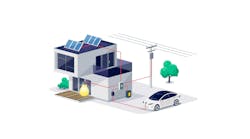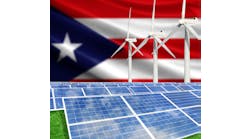US green banks may gain new clout — and microgrids new financing opportunities — with the formation of a green bank consortium this week.
The American Green Bank Consortium intends to use the combined scale of public, quasi-public, and non-profit green banks to raise more capital and share knowledge. US green banks have so far generated $3 billion in clean energy investment.
The consortium arrives as green banks, which are clean energy financing organizations, begin to explore ways to also fund resilience, according to Alex Kragie, director.
“There has been a broader conversation in our green bank community about expanding the mandates of green banks to include financing of resilience measures, most notably microgrids. This is going to be one of the things we are going to focus on in our annual industry report upcoming in April,” said Kragie, who created and managed Connecticut’s first-in-the-nation statewide microgrid program before serving in various green bank roles, including as acting executive director of the Montgomery County (Md.) Green Bank.
Kragie also noted that solar and storage are gaining more green bank attention. The Nevada Clean Energy Fund, for example, is making solar and storage an explicit focus of its business plan. “I believe that this is the beginning of a trend toward financing storage in particular that would be of interest to the microgrid world,” he said.
Founding members of the consortium include the Baltimore Climate Access Fund, the Connecticut Green Bank, the Florida Solar Energy Loan Fund, the Hawaii GEMS financing program, Inclusive Prosperity Capital, Michigan Saves, the Montgomery County Green Bank, the Nevada Clean Energy Fund, the New York City Energy Efficiency Corporation, and the Rhode Island Infrastructure Bank.
Launched by the Coalition for Green Capital, a non-profit that drives creation of green banks, the consortium will provide green banks with representation, advocacy, fundraising, and networking. The organization also will focus on federal legislative efforts to combat climate change.
“It’s time to recognize that the green bank movement has become a trusted and potent policy solution across the United States in the current climate crisis,” said Reed Hundt, CEO of the Coalition for Green Capital and former chairman of the Federal Communications Commission (FCC). “The consortium comes at exactly the right time, as Congress continues to think through prospective policy solutions to tackle the climate crisis. Green banks are already playing a role in solving this crisis, and the consortium will provide the linkage between green banks and policymakers.”
Track news about microgrids and financing. Subscribe to the free Microgrid Knowledge newsletter.







